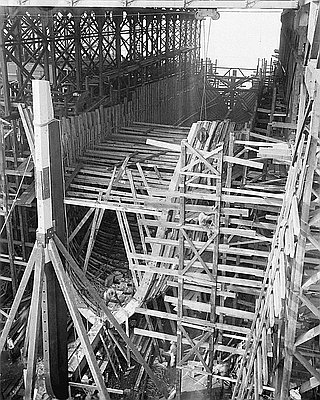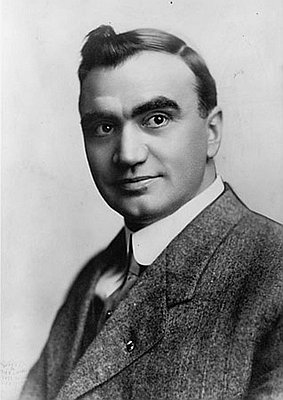- Catalog No. —
- Thomas Gough Ryan Papers, Mss1599, folders 21, 22
- Date —
- July 1918
- Era —
- 1881-1920 (Industrialization and Progressive Reform)
- Themes —
- Government, Law, and Politics
- Credits —
- Oregon Historical Society Research Library
- Regions —
- Portland Metropolitan
- Author —
- Committee on Public Information
The 4-Minute Men
This document was produced in July 1918 by the Committee on Public Information, a federal government office authorized by President Woodrow Wilson to increase public support for World War I. The Committee produced pamphlets, fed informational releases to the press, and created a division of volunteers called the 4-Minute Men who spoke in churches and theaters. The name combined a reference to the Revolutionary War minutemen with a play on the length of the speeches the volunteers gave—four minutes, the time it took to change a film reel.
World War I was not popular with all Americans, and anti-war sentiment hampered the government’s ability to sell war bonds and levy taxes. The Information office attempted to sanitize the press and encouraged companies to require their employees to purchase bonds. Its propaganda agenda was effective, helped in part by the cooperation of local leaders. The 4-Minute Men recruited prominent businessmen, clergy, and politicians to speak at local venues and collect pledges of support. Theaters were popular spots because audiences were already gathered and sat idle between film reels.
This speech was to be delivered on July 13 and 14 to commemorate Bastille Day (Independence Day) in France, with the hope that people would purchase Liberty bonds in recognition of the long relationship between France and the United States. France assisted Americans in the Revolutionary War, and the speech references the friendship between George Washington and the Marquis de Lafayette. The speech was written in Washington, D.C., and distributed to state headquarters in Portland, which maintained an office in the Lewis Building on Third and Oak Streets. Thomas Ryan was one of the office administrators in Portland and sent many requests and speeches to theater owners, such as Calvin Heilig, and local leaders, such as Mayor George Baker. His papers, held in the OHS Research Library, also include pamphlets, directives, and warnings to be wary of German sympathizers volunteering with the organization. Approximately 400 volunteers joined the 4-Minute Men in Oregon.
For the most part, the speeches were carefully scripted and timed, often coordinated so that many 4-Minute Men were giving the same speech at the same time in theaters throughout the city. They could read the script or memorize it, and they were given prompts to deal with enthusiasm or criticism from the audiences. Their goal was to walk away with signed pledges that could be turned into monetary support. On October 9, 1917, 4-Minute Men simultaneously appeared at ten Portland movie theaters, including the Liberty, the Columbia, the Majestic, and the Globe, to support the second liberty loan drive.
The text of this speech is extraordinary, primarily because it contradicts the policy of isolationism, or non-intervention, that Wilson had emphasized throughout his campaign, in contrast to the expansionism supported by Roosevelt and Taft. As late as 1917, Wilson resisted pleas from Europe to assist England, France, and their allies in the war, most notably in his “Peace without Victory” speech. The revelation, however, of the Zimmerman telegram in January 1917, which revealed an attempt by Germany to ally with Mexico, ended Wilson’s call for neutrality. The U.S. declared war, and a year later the 4-Minute Men were singing France’s national anthem in theaters across the country for the cause of a “greater world federation in the name of peace.”
Further reading
Auerbach, Jonathan. Weapons of Democracy: Propaganda, Progressivism, and American Public Opinion. Baltimore, MD: Johns Hopkins U. Press, 2015.
Mastrangelo, Lisa. "World War I, Public Intellectuals, and the Four Minute Men." Rhetoric and Public Affairs 12.4 (Winter 2009): 607-633.
Written by A.E. Platt; © Oregon Historical Society, 2021.
Related Historical Records
-
Shipbuilding, World War I
The shipyards at Grant-Smith-Porter Ship Co. still show considerable activity just after WWI. Wartime shipbuilding provided a bright exception to Portland’s otherwise lackluster economy during the First World …

-
The Portland Bunch, Camp Lewis, 1918
This World War I-era photograph of an African American Army unit was taken at Camp Lewis, Washington, on August 23, 1918. Nicknamed the “Portland Bunch,” the unit members …

-
George Luis Baker (1868-1941)
George Luis Baker served on the Portland City Council and as Commissioner of Public Affairs before being elected mayor of Portland in 1917. He served until 1933, his …


